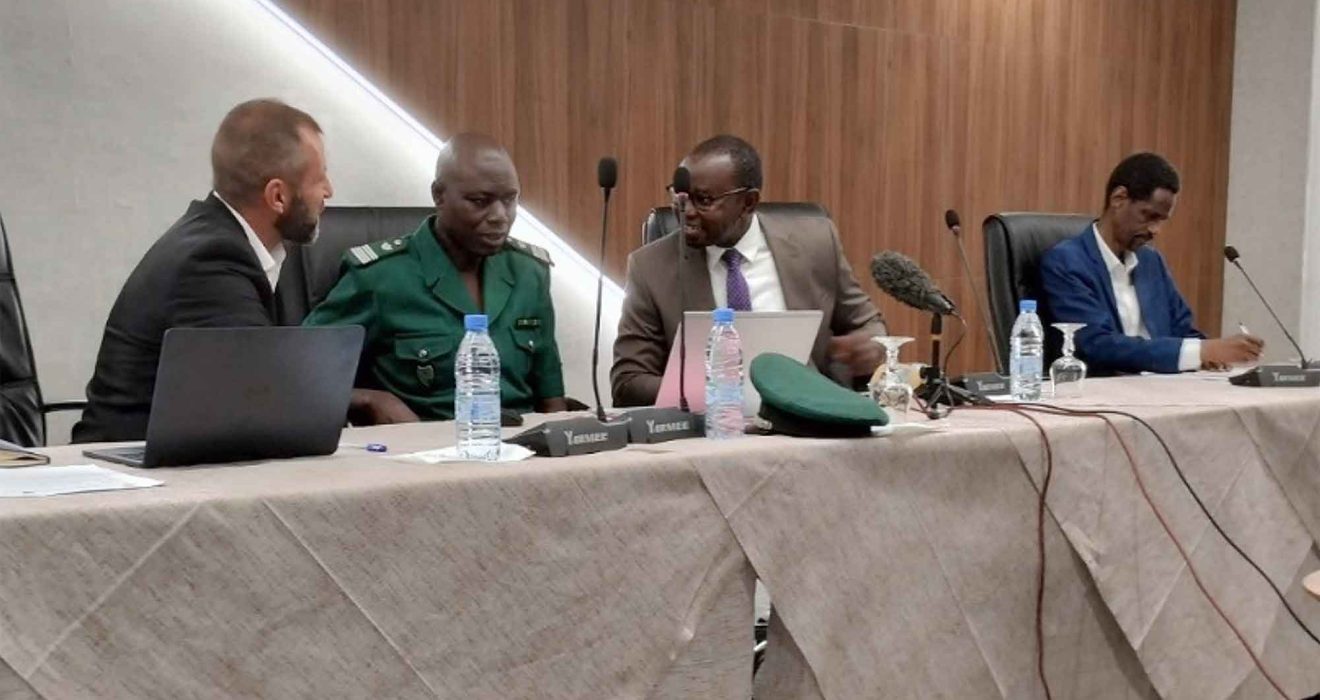Belize, a Central American jewel adorned with pristine rainforests, is making strides in environmental conservation. In a recent collaboration with the Center for Responsible Forest Management (CfRN), the country is reinforcing its commitment to the United Nations Framework Convention on Climate Change (UNFCCC) and the REDD+ framework.
Belize’s Rich Rainforest Ecosystem
Encompassing nearly half of Belize’s mainland, the rainforest emerges as a verdant tapestry, often hailed as the “lungs” of our planet. This section invites readers to delve into the enchanting realm of Belize’s rainforest, a dense and diverse ecosystem teeming with life. Serving as a sanctuary for an unparalleled array of flora and fauna, the rainforest encapsulates the essence of biodiversity. From the haunting calls of black howler monkeys echoing through the canopy to the vibrant hues of keel-billed toucans, this piece unravels the captivating stories of the rainforest’s inhabitants. Set against the backdrop of protected national parks and wilderness areas, Belize’s rainforest beckons explorers to witness the intricate interplay of nature at its finest, emphasizing the critical role this ecosystem plays in global ecological balance.
The Maya Forest Corridor and Conservation Challenges
Nestled in the heart of Belize, the Maya Forest Corridor stands as a crucial lifeline for biodiversity. As one of the few Central American countries harboring this ecological treasure, Belize plays a pivotal role in hosting a corridor vital for species with expansive ranges. Jaguars, Baird’s Tapirs, and White-lipped Peccaries heavily depend on this natural passageway to traverse between conservation units, ensuring genetic diversity and healthy populations. This section delves into the paramount importance of the Maya Forest Corridor, shedding light on the challenges Belize faces in safeguarding this essential link, from habitat fragmentation to the conservation of its national animal, the Baird’s Tapir, highlighting the delicate balance between human developments and preserving the nation’s rich biodiversity.
Collaborative Efforts
In a bid to meet its commitments under the Paris Agreement and UNFCCC decisions, Belize sought assistance from the Center for Responsible Forest Management (CfRN). This section outlines the collaborative efforts between Belize and CfRN, focusing on capacity building and the initiation of data collection processes. The role of CfRN in training new technicians and implementing land-use assessments is highlighted, showcasing the dedication to fulfilling REDD+ obligations.
Data Collection and Capacity Building in Belize City
In a proactive move towards enhancing Belize’s capabilities in environmental data management, the technical team from the Center for Responsible Forest Management (CfRN) undertook a mission to Belize City. This section intricately outlines the on-ground initiatives, focusing on the official commencement of activity data collection. Central to this mission was the imperative need for accurate data, pivotal for updating Belize’s Forest Reference Emissions Level (FREL). The narrative unfolds with a spotlight on the comprehensive training programs initiated by CfRN, tailored to equip new technicians with the necessary skills. This training not only serves as a catalyst for efficient data collection but also aims to foster sustainable capabilities, ensuring a long-term impact on Belize’s commitment to meticulous forest management and its active participation in the REDD+ framework.
Belize’s Progress and Compliance with International Agreements
Belize has made significant progress in aligning with international agreements, including presenting its Forest Reference Emissions Level (FREL) in 2020 and a Technical Annex in 2021 for REDD+ Results Evaluation to the UNFCCC. This section highlights Belize’s achievements in meeting the requirements of the UNFCCC, the Paris Agreement, and the Warsaw REDD+ Framework (WRF) Decisions. It underlines the importance of such milestones in the global context of climate change mitigation.
The Crucial Role of Rainforest Data in the Paris Agreement
Rainforest countries, exemplified by Belize, emerge as keystones in the worldwide battle against climate change. This section underscores their pivotal role by elucidating the significance of systematic data collection on land-use and change. Beyond the local scope, these efforts are crucial for updating national greenhouse gas inventories, aligning seamlessly with the stringent commitments set forth in the Paris Agreement. By delving into Belize’s endeavors, the narrative unfolds the broader implications of these initiatives. It emphasizes the indispensable role of accurate data, not only in compliance with the guidelines stipulated by the Intergovernmental Panel on Climate Change (IPCC) but also in shaping Belize’s submissions to the United Nations Framework Convention on Climate Change (UNFCCC) under the REDD+ framework. In the intricate tapestry of global climate action, Belize’s commitment to data accuracy echoes as a beacon for environmental stewardship and international collaboration.
Conclusion
In conclusion, Belize’s collaboration with CfRN and its dedicated efforts in updating forest mapping and activity data underscore the country’s commitment to environmental sustainability. As Belize navigates the challenges posed by climate change, its rich rainforest ecosystem stands as a testament to the need for global cooperation. Through partnerships with organizations like CfRN and adherence to international frameworks, Belize exemplifies a holistic approach to biodiversity preservation and climate action, setting a commendable precedent for other nations to follow.

